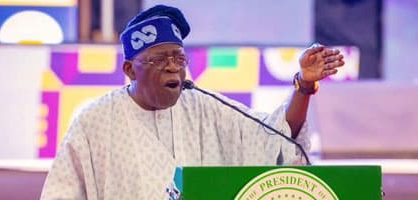In a pivotal move aimed at addressing Nigeria’s staggering infrastructure deficit, President Bola Tinubu has given the green light to the Renewed Hope Infrastructure Development Fund, which targets bridging the country’s annual $25 billion infrastructure funding gap.
Announcing this groundbreaking initiative, Mohammed Idris, the Minister of Information and National Orientation, disclosed to journalists following Monday’s Federal Executive Council meeting at the Presidential Villa in Abuja that the fund would be established within the Presidency. This decision comes in response to Nigeria’s pressing infrastructure needs, requiring an estimated $878 billion to bridge the gap from 2016 to 2040.
Idris emphasized the imperative of the fund, highlighting that an annual investment of $25 billion is essential to tackle Nigeria’s infrastructure deficit effectively. President Tinubu, in consultation with the Federal Executive Council, recognized this need and sanctioned the establishment of the Renewed Hope Infrastructure Development Fund.
Further elaborating on the fund’s scope, Zacch Adedeji, Chairman of the Federal Inland Revenue Service, outlined its focus areas, including road, rail, agriculture, ports, and aviation infrastructure. Adedeji underscored that the fund’s launch would coincide with the preparation of a supplementary budget by the Minister of Budget and Economic Planning, Abubakar Bagudu, to accommodate these critical projects.
The Presidency outlined four key objectives of the RHIDF, emphasizing its role in promoting economic growth, enhancing local value addition, creating employment opportunities, and fostering technological innovation and exports. Additionally, the fund aims to attract and consolidate capital for infrastructure development while executing strategic national projects across various sectors.
Efficient utilization of accessible low-interest loans, along with other favorable financing options, will supplement budgetary allocations to ensure optimal outcomes for the nation. The fund will adopt diverse investment strategies, including direct project financing, public-private partnerships, and equity investments, to maximize its impact.
In addressing agricultural infrastructure and food security, the RHIDF will prioritize the development of robust agricultural networks, including storage facilities, irrigation systems, ranching, and logistical enhancements. Similarly, port revitalization efforts will focus on modernizing port facilities to streamline operations, attract investments, and position Nigeria as a regional trade hub.
President Tinubu’s approval of the Renewed Hope Infrastructure Development Fund signals a significant step towards tackling Nigeria’s infrastructure challenges and fostering sustainable economic development. As the nation embarks on this ambitious endeavor, concerted efforts will be crucial in realizing the transformative potential of this landmark initiative.













